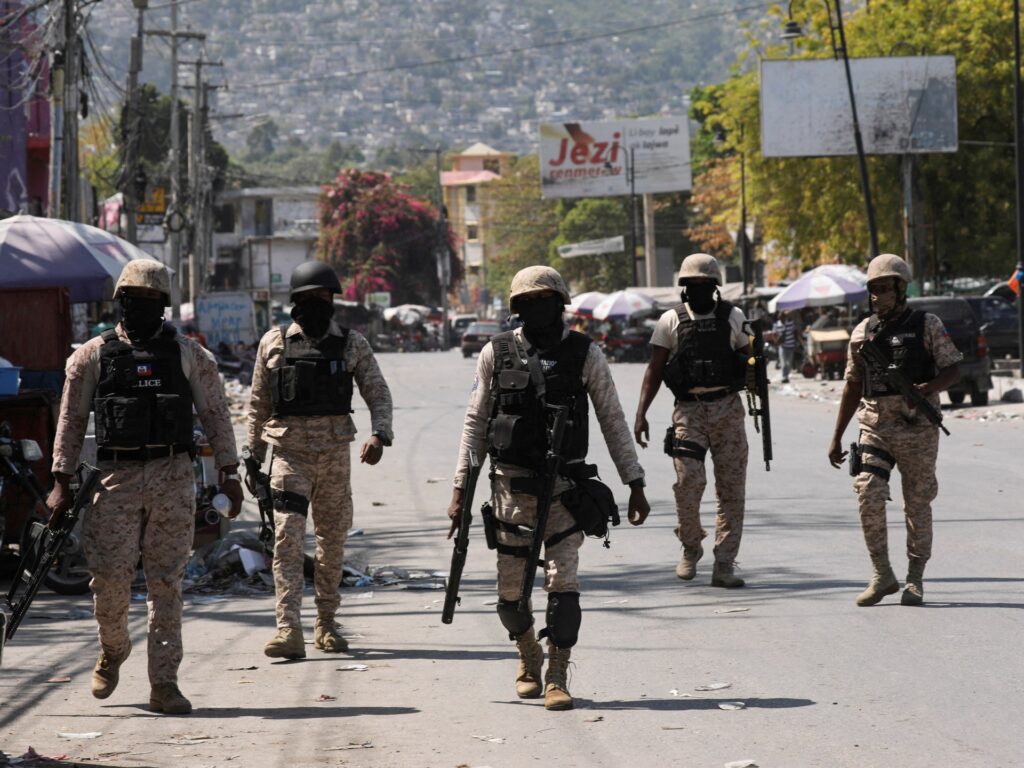A body was found on the outskirts of the capital, Port-au-Prince, as attacks by gang members have ravaged the country for weeks.
At least 12 bodies were removed by ambulance from Petion-Ville, a wealthy neighborhood on the outskirts of Haiti's capital Port-au-Prince, amid heightened tensions awaiting the announcement of a new government.
Before dawn on Monday, gunmen ransacked homes in the mountain communities of Labourg and Tomassan, forcing residents to evacuate as some called on radio stations to call the police.
Despite a spike in gang attacks across Port-au-Prince that began on February 29, neighborhoods remained largely calm.
The bodies of the gunshot victims were removed from a suburban highway and outside a gas station, Reuters and the Associated Press reported.
The attacks have raised concerns that gang violence will not end, despite Prime Minister Ariel Henry's announcement about a week ago that he would step down once a transitional presidential council was established. The council will include seven voting members and two observers from different political coalitions and social sectors.
The gang's leaders, who have long called for Henry's removal, have warned of “fighting” over Haiti and threatened politicians on the transition council. Meanwhile, residents are facing increasing shortages of food and medical care.
Haiti has been experiencing years of unrest, which suddenly took a turn for the worst after President Jovenel Moïse was assassinated in 2021.
The crisis deepened this year as Haitian armed groups launched attacks on police, prisons and other state institutions. Port-au-Prince's main airport is closed and residents are afraid to leave their homes to get water, food and other supplies.
On Monday, Haiti's electricity company announced that four substations in the capital and elsewhere had been “destroyed and rendered completely inoperable.” As a result, power was cut across large areas of Port-au-Prince, including the Cité Soleil slum, the Croix des Bouquets area and hospitals.
The criminals also seized important documents, cables, inverters and batteries, the company said.
Jean-Michael Bauer, head of the United Nations World Food Program in Haiti, said the deteriorating situation was making it difficult for humanitarian organizations to deliver aid to the Caribbean country.
“Port-au-Prince is a place right now in the middle of a bubble. You can't get in and out by road. It's very difficult to get in and out by plane. It's difficult to get in and out by sea,” Bauer told the European Parliament on Monday. He spoke at the Human Rights Subcommittee.
“This country needs security. Security is the biggest issue right now. But at the same time as we bring security, we also need to have a strong humanitarian element in everything we do.”
The violence has sparked a political impasse, with the U.N. as well as the U.S. and Canadian embassies withdrawing staff in recent days.
The international community is also pushing for the deployment of Kenyan-led police to help maintain security in Haiti.
US State Department Spokesperson Vedant Patel said on Monday that the Caribbean Community (CARICOM) is close to finalizing its transition council.
“We believe this council's announcement will help pave the way for free and fair elections and the deployment of a multinational security assistance mission,” Patel told reporters.
The State Department arranged for a chartered flight to evacuate dozens of American citizens from Haiti. Mr Patel said the evacuation plan was developed in response to the limited availability of commercial flights out of the country.


